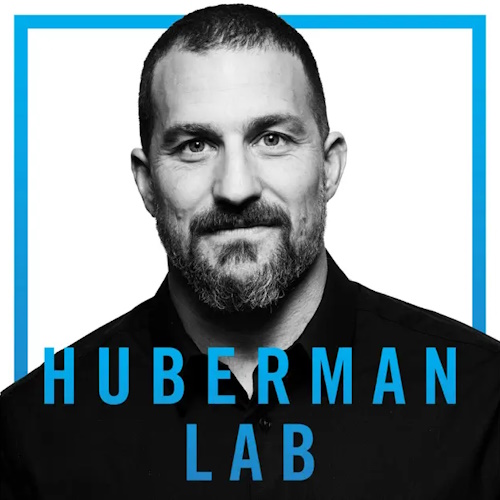Essentials: The Biology of Slowing & Reversing Aging | Dr. David Sinclair
The Huberman Lab podcast-David Sinclair explores the cellular and molecular drivers of ageing
This Huberman Lab Essentials episode revisits a conversation with Dr. David Sinclair, a Harvard longevity researcher known for his work on the biology of ageing. Sinclair explains how ageing functions at the molecular level, why he views it as a treatable condition, and what lifestyle strategies can slow or even reverse aspects of biological ageing.
Key Points:
Sinclair frames ageing as a reversible loss of epigenetic information that can be slowed through diet, exercise, and targeted interventions. Fasting and reduced insulin signalling activate protective longevity pathways, while stress and DNA damage accelerate ageing. With the right habits, much of the ageing process—and its diseases—may be preventable or modifiable.
- Ageing as loss of epigenetic information: Sinclair argues that ageing is driven mainly by damage to the epigenome—the cellular system that controls which genes turn on or off. As these regulatory “instructions” degrade, cells lose identity and function, leading to age-related diseases.
- DNA damage and stress accelerate ageing: Breaks in DNA, environmental stress, and developmental changes can “scratch” the epigenetic system. Experiments show that inducing controlled DNA damage can make animals age faster, demonstrating direct control over the ageing rate.
- Fasting, low insulin, and longevity pathways: Intermittent fasting lowers insulin and glucose, activating longevity genes such as sirtuins and turning down growth pathways like mTOR. Longer fasts (2–3 days) enhance cellular clean-up processes like autophagy, linked to improved healthspan.
- Exercise and supplements that support cellular health: Aerobic and resistance exercise increase NAD and sirtuin activity. Sinclair personally uses NMN to raise NAD levels, though he notes this is not a recommendation. He also highlights tracking markers such as HbA1c and CRP to monitor metabolic and inflammatory health.
- Longevity is modifiable through lifestyle: Up to 80% of our long-term health is shaped by epigenetics, not genetics. Tools such as time-restricted eating, stress management, muscle maintenance, and modulating nutrients (protein, leucine, iron) can significantly slow biological ageing and may even restore fertility in animal models.
Visit website: https://www.youtube.com/watch?v=Ykvkg2Jz3X8
See alsoThe Huberman Lab podcast
Neuroscience Podcast: how the brain shapes perception, behavior, and health
Details last updated 11-Nov-2025






